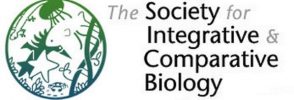Contents [hide]
Message from the Chair
David Angelini, Chair.DEDB@sicb.org
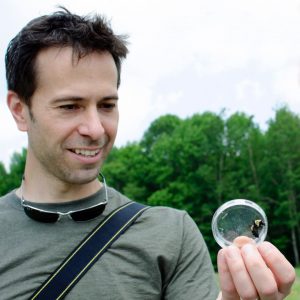
This fall I find myself returning from sabbatical, a welcome opportunity to focus on research and writing. Now returning to teaching, I am reminded of the energy and excitement it can bring, but also of the challenges of teaching. Covid-19 and remote teaching and learning shape a new reality for education, and I find myself reassessing many of the ways I approach my courses. While many of us may think of SICB as a place to share research experiences, I want to remind our members that the Society also has an active Educational Council. Check out their section of the Society Newsletter for more information on teaching resources, and look out for pedagogical workshops that are now being planned for our next conference in Austin. And of course the Moore Lecture is always one of the highlights of the meeting, an opportunity to hear fresh perspectives on science education.
Planning is in full swing for SICB 2023! Our Program Officer, Frank Smith, has been working with many groups on an exciting line-up of symposia that should speak to the evo-devo community and its many intersections with SICB’s other divisions. We were thrilled to see the abstracts for the Best Student Presentation competitions from so many promising young investigators in the field. For those of you who are more established, please consider volunteering to serve as judges! Judging student posters and talks was one of the first ways I became involved at the Society level, and it has been such a wonderful way to connect to the community. The application deadlines have now passed for the Skinner, GIAR, FGST and Broadening Participation Awards, but the Mangum deadline has been extended to October 27. The early registration deadline for SICB 2023 is November 1.
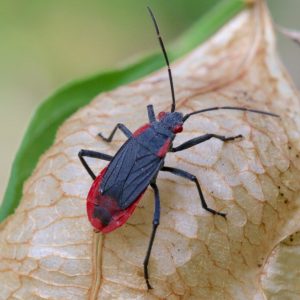
Thank you to everyone who voted in our recent society elections! And a special thanks to all the candidates for their willingness to serve. I am very pleased that Prashant Sharma (University of Wisconsin-Madison) will become the next DEDB Division Chair-Elect. – If you didn’t see a ballot for DEDB offices this year, be sure to log into the SICB website and check your divisional affiliations. By checking DEDB, your SICB membership helps to keep evo-devo in the symposia, workshops and other events organized for the conference.
Finally, I want to conclude this message with a huge thanks to Ryan Hulett. After serving three years as the DEDB representative to the Student/Postdoctoral Affairs Committee, Ryan’s term will be ending this year. We are now accepting nominations (and self-nominations) for a student or postdoc interested in filling this critical position. Check out Ryan’s Newsletter section, which details the role, and contact any of the division officers if you’d like to be considered!
Message from the Program Officer
Frank Smith, DPO.DEDB@sicb.org
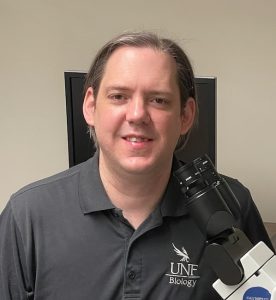
Hi all, I hope everyone had a fun and eventful summer. There are a lot of exciting developments to report in terms of the 2023 meeting program. First, the Society as a whole received more than 1800 abstracts. This is back to pre-pandemic levels. SICB+ continues to be a popular option, which is fantastic since it is impossible to see all of the great talks and poster presentations in person. Nonetheless, nearly everyone that submitted an abstract plans to attend the meeting in person in Austin. Our division received 37 abstracts for talks and 35 abstracts for posters, with all presenters besides one planning on attending in person. Nine symposia are scheduled for the Austin meeting, and they all look very interesting. I’m especially excited about “Genomics of marine larval evolution and development,” organized by Christina Zakas and Chema Martin. You can read the whole list of scheduled symposia on the 2023 meeting webpage.
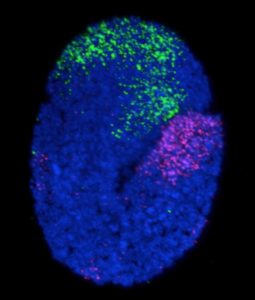
Austin 2023 is shaping up to be an incredibly exciting meeting for our division, which brings me to my next point of interest. DEDB will be co-hosting a social with the Division of Invertebrate Zoology, the American Microscopy Society, and the Crustacean Society, which is scheduled to take place on Friday night, 1/6, from 8:30–10:00 PM. We will all have the opportunity to catch up with old friends and make some new ones. Lastly, be sure to stay through Saturday night, 1/7, for the SICB celebration that will officially end the meeting with fun and festivities. I know the organizers of the celebration are aiming big, so be sure not to miss it!
I hope to see you in Austin!
Message from the Secretary
Leslie S. Babonis, Secretary.DEDB@sicb.org
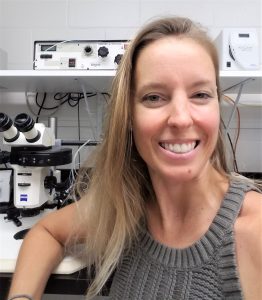
Ahoy, DEDB! Fall is upon us and that means the annual meeting is just a few short months away. I’m looking forward to seeing y’all in Austin for some great science and a great scene (and bats!). This will be my last “ahoy,” DEDB – I’ll be signing off as Division Secretary after the 2023 meeting in Austin. I’m looking forward to passing the torch to the very capable (and imminently hireable) Dr. Allison Edgar, senior postdoc in the Martindale Lab at the University of Florida/Whitney Lab for Marine Bioscience. Allison is a card-carrying developmental biologist and devoted member of the EvoDevo community – you are in good hands with her! In this, my last, newsletter it is my great pleasure to thank Prashant Sharma and Athula Wikramanayake for volunteering to run for Chair-Elect. As we all know, DEDB is only as good as its volunteers and we are lucky that so many of you are willing to donate your time to making our community stronger. I’ll echo Dave’s comments congratulating Prashant on becoming the new Chair-Elect. You may remember Prashant was the Secretary of our Division serving in the term before mine; well, now he’s back for more evo, more devo, and more service to our community! Thank you, Prashant! If you are inspired by the generosity of our Division’s current and former volunteers, please sign up to judge talks and posters for the DEDB Best Student Presentation competition at the 2023 meeting. It is a rewarding experience and your dedication to our early career members will be greatly appreciated!
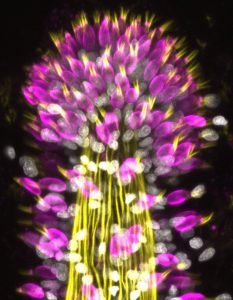
Please consider posting job ads, postdoctoral positions, and opportunities for students to our Twitter feed, @SICB_DEDB. We also want to highlight your research on the new SICB website! Tweet or email a research picture, a title for the picture/research, and a brief (1-3 sentences) description of your research and we’ll get it posted. Don’t forget to check out the 2022 Early Career Spotlight, which aims to increase the visibility of one of our up-and-coming members in the DEDB community. Postdocs, graduate students, and undergraduates are all eligible, so please nominate a candidate to be highlighted in our next spotlight by emailing Secretary.DEDB@sicb.org.
Let the countdown to Austin begin!
Message from the Student/Postdoctoral Affairs Committee Representative
Ryan Hulett, rhulett@g.harvard.edu
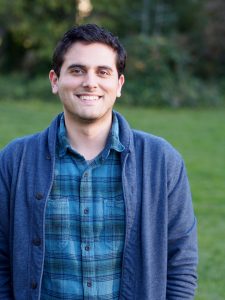
Happy Fall DEDBers!
I hope you’re excited for the upcoming SICB 2023 meeting in Austin, Texas! (Don’t forget to register!)
We will be continuing the annual Evo-Devo Meet-ups this year (bringing back the tradition of Evo-Devo Dinners and/or Evo-Devo Coffees). The meet-ups are intended to facilitate interactions between students, technicians, and other early career folks with postdocs, faculty members, and people in industry.
- Hosts: Faculty members/postdocs/people in industry can volunteer to take students out for dinner and/or coffee.
- Students: Students can sign up to meet faculty/postdocs/people in industry based on research interests. (The term student is being used here to describe all early career folks that are interested.)
If you have registered for the meeting by early December and have selected DEDB as one of your affiliations, you will receive an email about this in mid-December. If you would like to participate (and are registered for SICB 2023) and haven’t received an email by mid-December, please email me (rhulett@g.harvard.edu).
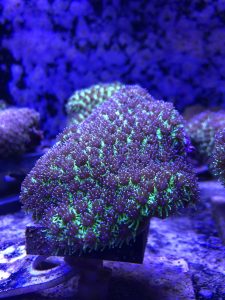
We are planning for these meet-ups to be in-person and to follow the appropriate health and safety measures. We will give hosts and students the option to meet virtually as well.
During the meeting, please stop by the SPDAC (Student and Postdoctoral Affairs Committee) booth to network with other scientists and gain invaluable knowledge on a variety of topics aimed at students and postdocs. More information can be found on the SPDAC page as well as the twitter account @SICB_SPDAC.
For those of you that have participated in the Evo-Devo Meet-Ups in the past, please provide feedback! And for DEDBers in general, we would like to hear from you regarding your comments, concerns, and ideas for the division. This will be my last meeting as the DEDB student/postdoc representative. It’s been amazing serving the community in this role. If you are a student/postdoc interested in the representative role, please feel free to reach out.
That’s all from me! See you in Texas!
DEDB Early Career Spotlight
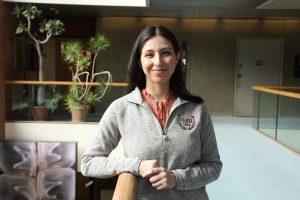
This fall, the DEDB Early Career Spotlight shines on: Yareli Alvarez (ya92@cornell.edu).
Yareli is pursuing her PhD in Ecology and Evolutionary Biology in the lab of Dr. Leslie S. Babonis at Cornell University. She is currently investigating inducible fighting structures in the sea anemone, Metridium senile, to understand how environmental cues control cell type plasticity. How do sea anemones fight, you ask? They can detect members of different colonies and transform preexisting feeding tentacles into fighting tentacles equipped with a unique suite of stinging cells capable of causing necrosis. If you would like to learn more about fighting sea anemones, stop by her talk at the Austin, TX meeting! Outside of research, Yareli enjoys art in many forms including digital scientific illustration, block printing, and ceramics.
If you know an early career DEDBer that you would like to see highlighted in the next “spotlight” please email us!
